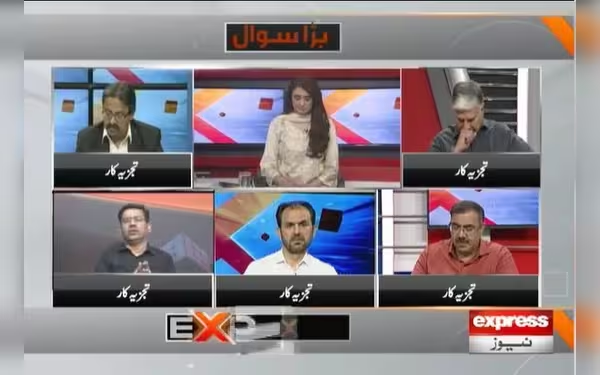Thursday, July 4, 2024 06:02 PM
Criticism of Judiciary in Pakistan by Political Figures
- Importance of maintaining harmony between institutions
- Need for democratic leaders to trust the legal system
- Concerns over perceived biases and lack of trust within judiciary
 Image Credits: tribune_pk
Image Credits: tribune_pkThe ongoing concern of criticism towards the judiciary in Pakistan by political figures highlights the delicate balance needed between institutions in a democratic society.
It is widely recognized that criticism of the judiciary has been an ongoing concern in Pakistan, particularly among advocates of democracy. Experts emphasize the importance of maintaining harmony between institutions to prevent adverse effects on the nation. They stress the necessity for institutions to establish clear priorities to avoid conflicts.
Over the years, various figures claiming to support democracy have directed criticism towards the Supreme Court in Pakistan. Notable leaders such as Nawaz Sharif, Maryam Nawaz, and Maulana Fazlur Rehman have expressed their discontent with the judiciary in different ways. Even Imran Khan's party has voiced dissent over judicial rulings that did not align with their interests, underscoring the intricate relationship between politicians and the judiciary.
While acknowledging the judiciary's imperfections, experts highlight the significance of democratic leaders placing trust in the legal system to uphold the rule of law. There is a unanimous agreement among experts on the necessity of fortifying the judiciary to ensure impartiality and fairness in delivering justice to all parties.
Concerns have been raised regarding perceived biases within the judiciary, with some suggesting that powerful groups may exert undue influence on judicial verdicts. The lack of trust among judges themselves is viewed as eroding public faith in the legal system, underscoring the importance of fostering mutual trust among judicial authorities.
Experts express deep concern over the current state of institutional conflicts in Pakistan, cautioning that escalating tensions between institutions could reach a critical point. It is imperative for institutions to identify and prioritize their objectives during this challenging period to prevent further escalation of conflicts.
Furthermore, amidst internal conflicts between institutions, issues such as inflation and economic challenges remain pressing concerns for the public. Experts emphasize the urgency of addressing these challenges to navigate the country out of the current crisis and ensure stability for future generations.
The persistent criticism of the judiciary in Pakistan underscores the delicate balance required between institutions in a democratic society. By fostering trust, impartiality, and clear priorities, Pakistan can navigate through its current challenges and pave the way for a more stable and prosperous future.













